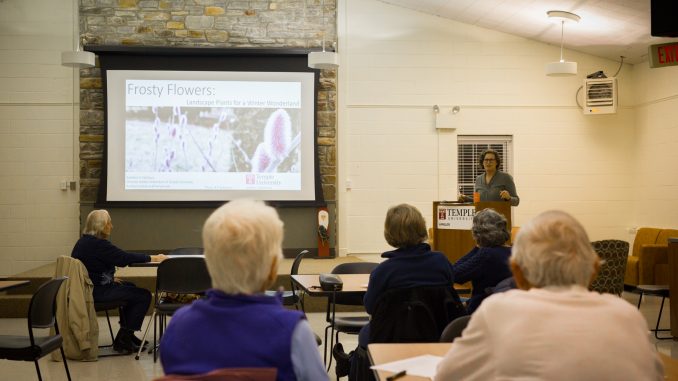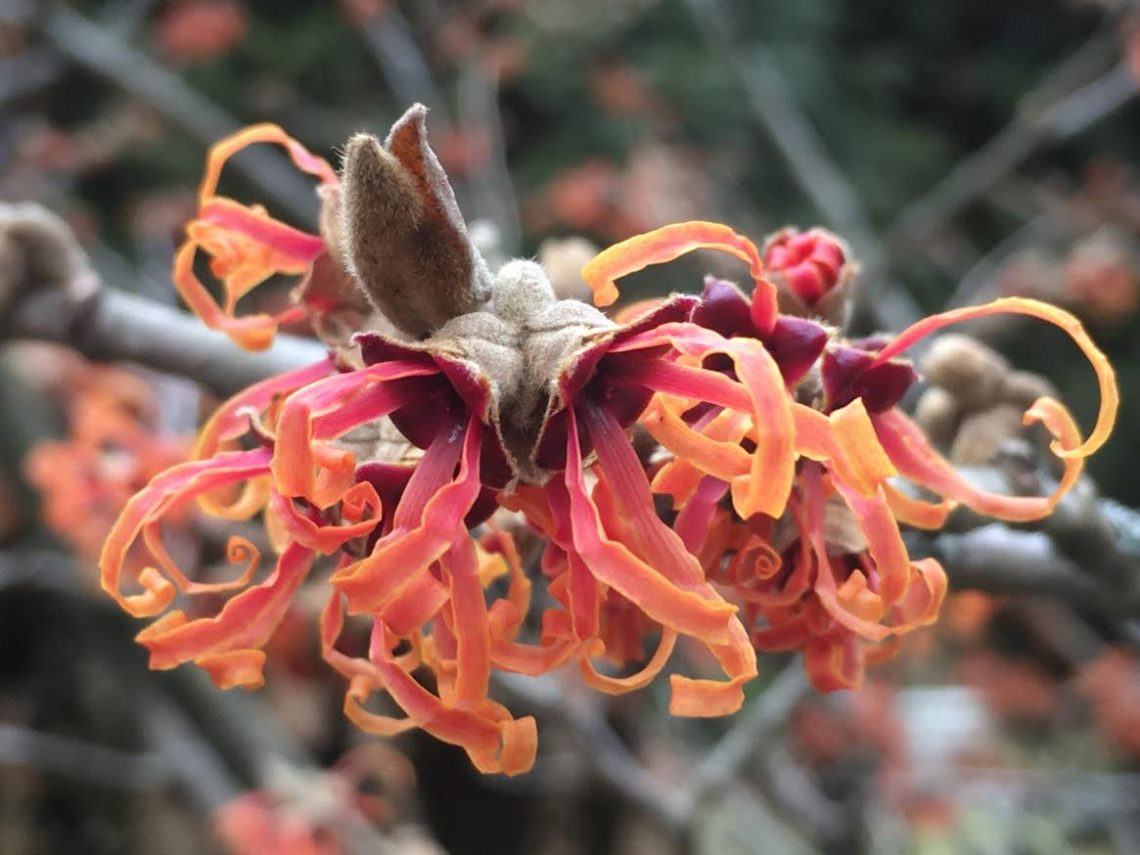
Kathy Salisbury loves winter. She wants to give people more reasons to be outdoors in the season.
“People don’t think they can have flowers in the winter and I want to show that you can,” Salisbury, director of the arboretum at Temple Ambler said. “I wish more people would get outside in winter and maybe if people knew there were flowers to find, they’d be outside.”
Salisbury spoke to students and faculty on Jan. 15 at “Frosty Flowers, Trees and Shrubs to Make Your Garden A Winter Wonderland,” an event about plants that can withstand cold temperatures.
The event, held in the barn-like lounge of Ambler’s Bright Hall, was part of its ongoing monthly speaker series. Events in the series “feature local experts and highlight sustainability, women in horticulture and the healing power of plants and gardening,” according to a description on the campus’ website.
Throughout the roughly hour-long presentation, Salisbury showcased plants like witch hazel, Japanese pussywillow, eastern leatherwood and dozens more. Salisbury estimated that about a third of the plants she talked about were native to the area, with the rest brought in from elsewhere.

The arboretum’s staff, however, emphasizes cultivating native plants both in curriculum and in managing their gardens due to their importance to the environment, Salisbury said.
“We make sure in our practices, the way we maintain our gardens, that we support a wide diversity of wildlife, that we are a habitat, and that we don’t plant anything that’s going to be bad for the environment, like anything invasive.”
Salisbury described the plants in terms of hardiness, a plant’s ability to survive harsh conditions like low temperatures.
She also highlighted unique ways plants deal with the winter, like the way the leaves of rhododendron plants fold up when the air around them gets too cold—a phenomenon called “thermonasty.”
Salisbury, who has been the arboretum’s director since July 2017, said that she hopes to raise awareness about the university’s resources to the community around campus and the wider student body.
These resources include the publically accessible indoor and outdoor gardens, programs like the speaker series and the opportunity for Temple students to take GenEd classes on a greener campus, Salisbury said.
She said she hoped attendees of the event left inspired to add some new, winter-hardier plants to their gardens.
Nital Kakadia, a junior horticulture major who attended the event, said she intends to plant a Japanese pussywillow as soon as she finds space for it.
“I’m still actually designing my garden because I moved here. This is my third year now, from the west coast, and I’m trying to learn how things are going to work here plant-wise,” said Kakadia, who transferred to Temple from a community college in California.
The psychological benefits of gardening are helping her deal with Pennsylvania’s less forgiving climate, Kakadia said.
Stephanie Bross, a junior horticulture major who also works as a student gardener, said that she found the presence of plants to be therapeutic in the winter-time.
“Our greenhouse here, the moment you walk in there from the garden outside, and it’s cold and windy and dreary, and it’s like you’re in the tropics,” said Bross. “Your mood is immediately elevated.”


Be the first to comment